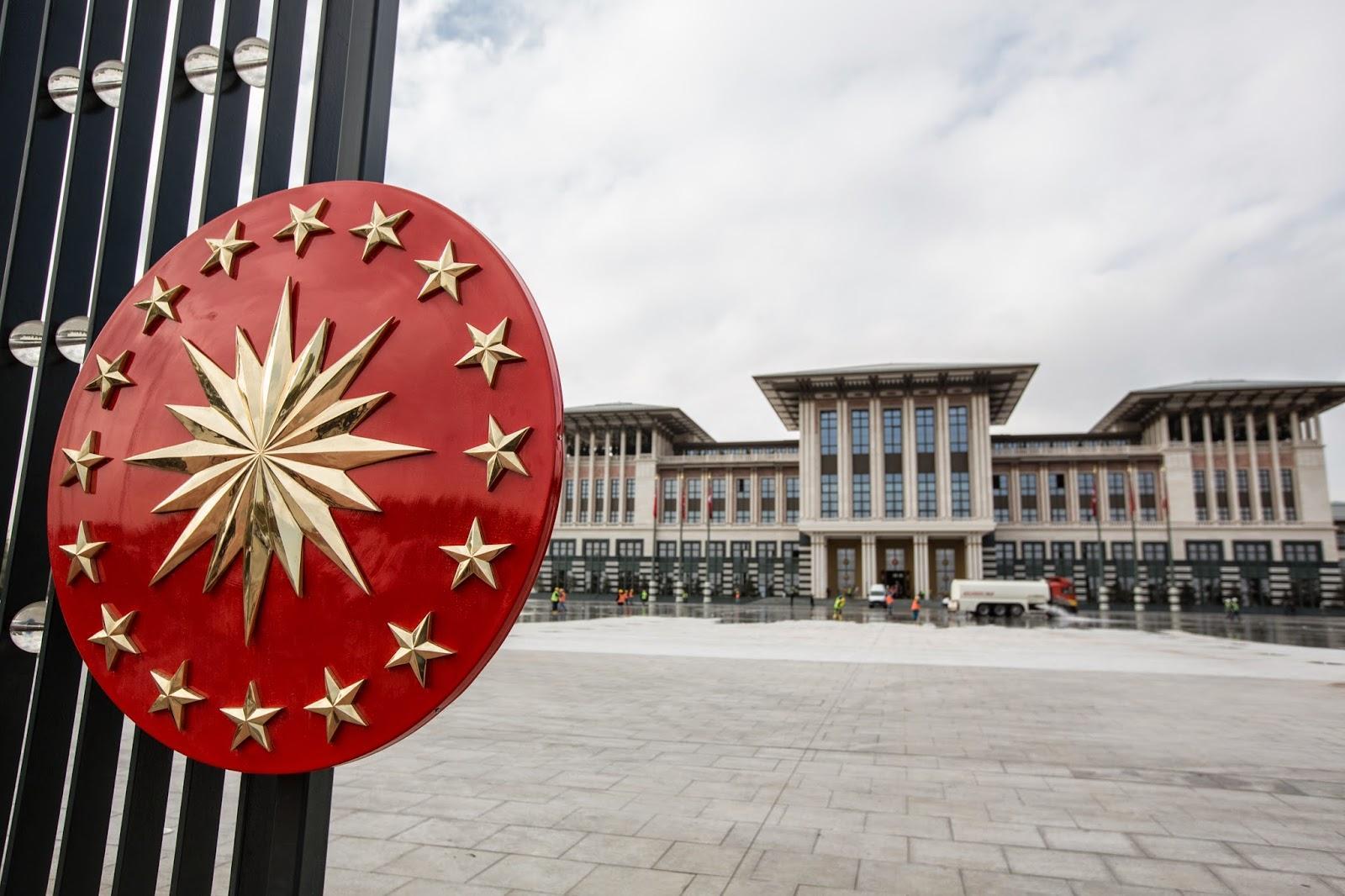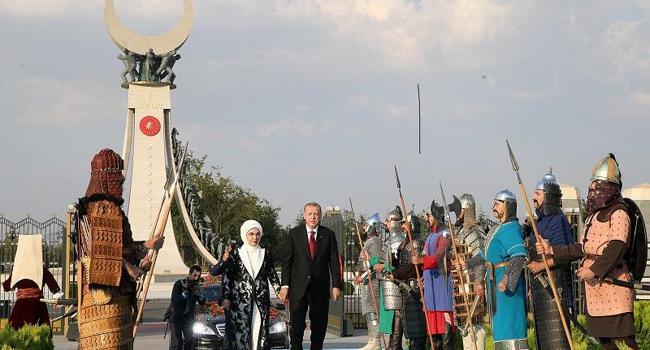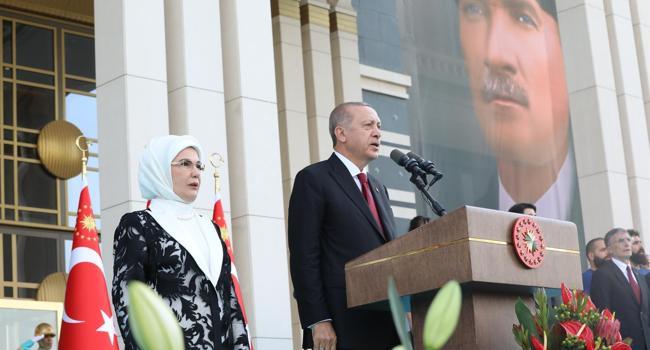President Erdoğan announces ministers of Turkey's new cabinet
ANKARA

President Recep Tayyip Erdoğan has announced the new ministers of his cabinet as Turkey officially switched to an executive presidency.
Erdoğan appointed Chief of General Staff Gen. Hulusi Akar as the new defense minister and his son-in-law Berat Albayrak as the Treasury and Finance Minister in a 16-seat surprise cabinet with not much known bureaucratic figures, hours after he was sworn into office on July 9.
Erdoğan’s vice president is Fuat Oktay, former undersecretary of the office of the prime minister, who is regarded as one of the architects of the bureaucratic and administrative transformation after the governmental system has been shifted into presidency through last year’s referendum.
Erdoğan opted to continue with current Justice Minister Abdülhamit Gül, Interior Minister Süleyman Soylu and Foreign Minister Mevlüt Çavuşoğlu in the new cabinet.
These figures, along with Berat Albayrak, who will serve as the Treasury and Finance Minister, will have to resign from the Parliament to join the cabinet.
President’s choice as the Trade Minister Ruhsar Pekcan, a businesswoman who has been serving at Turkey’s largest trade chamber as the deputy head for the woman entrepreunership and at Foreign Economic Relations Board (DEİK).
Mustafa Varank, one of closest aides of Erdoğan, will serve as the Industry and Development Minister in the new cabinet.
Undersecretary of the Energy Ministry Fatih Dönmez is appointed as the Energy Minister while Cahit Turan, former head of the Directorate of Highways, will serve as the Transportation and Infrastructure Minister.
Education Minister Ziya Selçuk has long served at the Education Ministry but he is well-known as the owner of a private college in Turkey.

Full list of ministers
Erdoğan took his oath in parliament on July 9 after being elected as the country’s president in the June 24 elections, in which he garnered 52 percent of the votes.
After his swearing-in, the system change — stipulated by the constitutional amendment which was approved by last year's referendum — has gone into full effect.
Following an official inauguration ceremony at the presidential complex in Ankara on July 9, Erdoğan announced the full list of minister with a press conference as follows:
Vice President: Fuat Oktay
Justice Minister- Abdülhamit Gül
Foreign Minister: Mevlüt Çavuşoğlu
Interior Minister: Süleyman Soylu
Defence Minister: Hulusi Akar
Treasury and Finance Minister: Berat Albayrak
Energy and Natural Resources Minister: Fatih Dönmez
Industry and Development Minister: Mustafa Varank
Commerce Minister: Ruhsar Pekcan
Environment and Urban Minister: Murat Kurum
National Education Minister: Ziya Selçuk
Health Minister: Fahrettin Koca
Transport and Infrastructure Minister: Cahit Turan
Culture and Tourism Minister: Mehmet Ersoy
Labor, Social Services and Family Minister: Zehra Zümrüt Selçuk
Agriculture and Forest Minister: Bekir Pakdemirli
Youth and Sports Minister: Mehmet Muharrem Kasapoğlu
The ministers will take their oaths on July 10.
New government system begins in Turkey after President Erdoğan takes oath

The announcement came hours after Erdoğan issued the first presidential decree through which the new ministries were formed and presidential organizations were set under his authority.
Under the new government system of Turkey, the president is both the head of state and government, with the prime minister’s post abolished.
Turkish ministers will be reporting to the president, no longer to parliament as it was in the old system.
Bureaucratic cadres will be appointed after the new ministers take office.
Beside ministeries, there will be a number of offices that will work under the president and will implement the presidency’s projects in the new system.
A total of 65 existing boards, commissions and committees established with laws and other regulations are merged under nine entities, namely Social Policies Council, Law Policies, Security and Foreign Policies, Local Governments, Health and Food, Economy, Education and Science/Technology/Innovation.
The president will chair the boards, but there will be an acting chair for each of them. The boards will propose policies, oversee the implementation of the policies and take macro decisions that are beyond the responsibilities of the ministers.
The eight directorates will include the Directorate of General Staff, Directorate of National Intelligence, and Directorate of Religious Affairs. The Directorate of Strategy and Budgeting will be launched for the first time. It will be in charge of preparing the budget and will be overseen by the president. The Directorate of Communication will organize all media and communication activities.






















